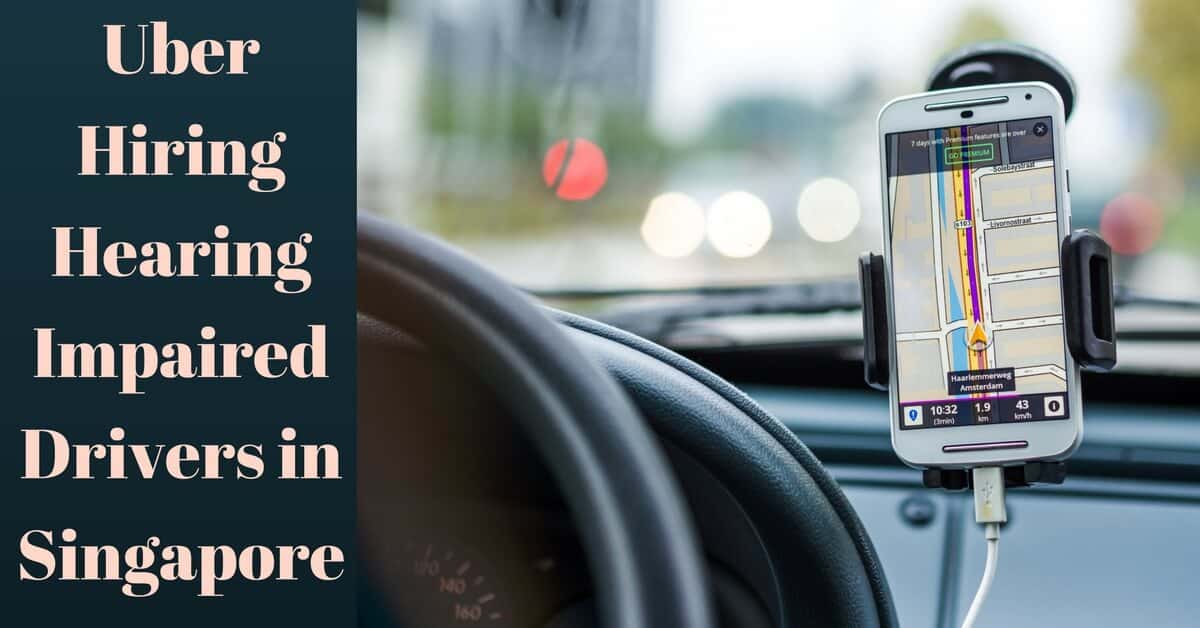
Shattering the glass ceiling in more than one way, Uber the international ride-hailing service, launched Project Beethoven. The goal of the project is to close the discrimination gap by employing those who are hard of hearing and deaf as Uber drivers. This project quickly gained traction and has now been launched in 400 cities around the world hiring a whole new workforce demographic. Isn’t that cool?
Global Movement to Recognize Hearing Loss
Uber’s initial launch of Project Beethoven started in Chicago back in 2015. It was well received and operations quickly grew to 400 cities globally including Washington D.C., Singapore, Manila and Toronto. This became a joint project where Uber partners with official, local hearing societies, associations or non-profit groups as well as cooperating with the government to employ their new drivers.
An article from The Washington Post indicates that, “Deaf and hearing-impaired people face staggering unemployment: 7 of 10 hard-of hearing people in the United States are without work or underemployed, according to the Communication Service for the Deaf.” Many in this demographic find it difficult to find reliable employment that will help make ends meet. In one case in Washington D.C., a deaf Uber driver found that this opportunity finally gave him a reliable avenue to earn a flexible living.
In a separate study by World Federation of the Deaf, it is estimated that around 100 countries allow deaf and hard of hearing individuals to obtain driver’s licenses. This provided a creative opportunity and, for companies like Uber, seized the chance to open new doors. Chris Soukup, chief executive of the Communication Service for the Deaf believes that this is, “an opportunity to build bridges between people and influence a new perception of the abilities and humanity of deaf people.”
How it works with Uber
Uber modified its technology to create options catered to those who are hard of hearing. Upon approval to become an Uber driver the app provides alerts through light flashes instead of beeps and switches the “call driver” option to “message driver.” It also prompts passengers of that their driver is hard of hearing to hopefully deter any miscommunications or misunderstandings.
Who Is Eligible for Employment?
Since Uber must operate under local laws, the requirements to hire hard of hearing and deaf drivers varies from city to city. Washington D.C. allows deaf individuals to obtain driver’s licenses thus allowing Uber to hire the full range of hard of hearing and fully deaf employees. However, other cities like Singapore requires that hearing-impaired drivers must be able to hear at 50 decibels thus changing the employee demographic in comparison.
Uber partners with local associations, societies and non-profit organisations to hire these new employees. Ultimately, these partnerships have also assisted the company by providing feedback in finding innovative ways to cater Uber’s technology to hard of hearing needs. Not only has this become a new employment opportunity but also something that has been customized to allow hard of hearing drivers to operate independently and safely in their environments.
Reception and Response to Uber’s Initiative
Overall, there have been mixed reactions from customers. Many are welcoming of Project Beethoven while some are more apprehensive that they are with safe drivers. While the prevalent fear is understandable for many, this Project aims to dissolve all fears or apprehensions of people who have visible or invisible disabilities. Many customers are finding out that their drivers, despite hearing loss, are safe drivers. Some may have to modify their environment to better suit their needs but, in the end, these employees are just as capable to serve the public as any other candidate.
Uber has also launched a new project to provide wheelchair accessible vehicles. Wherever Uber is heading, it’s clear that they should be lauded for their conscious effort to change the employment perceptions providing opportunities for all.
You don’t have to live with untreated hearing loss! Contact at us at one of our My Hearing Centers locations today for a hearing test.
My Hearing Centers
We change lives through better hearing. We have locations in 9 states - there's sure to be a location near you.
(877) 330-2920
